Alcohol is part of almost every culture 🍷—from celebratory toasts to relaxed evenings with friends. In small amounts it can offer some benefits, but when a moderate habit turns into heavy drinking, the health effects appear quickly. And hair—one of the most sensitive mirrors of the body’s inner balance—is often among the first to suffer.
Why hair? 🧬 Because it depends on balanced hormones, proper nutrition, liver health, circulation, and mental wellbeing. Alcohol can disrupt all of these—especially when it’s too much or too often. In this post, we’ll look at where the line lies between enjoyment and harm, how alcohol affects your hair, and what you can do to protect your strands—without giving up the life and moments you love.
🍷 Moderate Drinking: Benefits and Safe Limits
One “drink” equals roughly 150 ml of wine (12%), 350 ml of beer (5%), or 45 ml of spirits (40%). Staying within these limits is generally not considered harmful for most healthy adults.
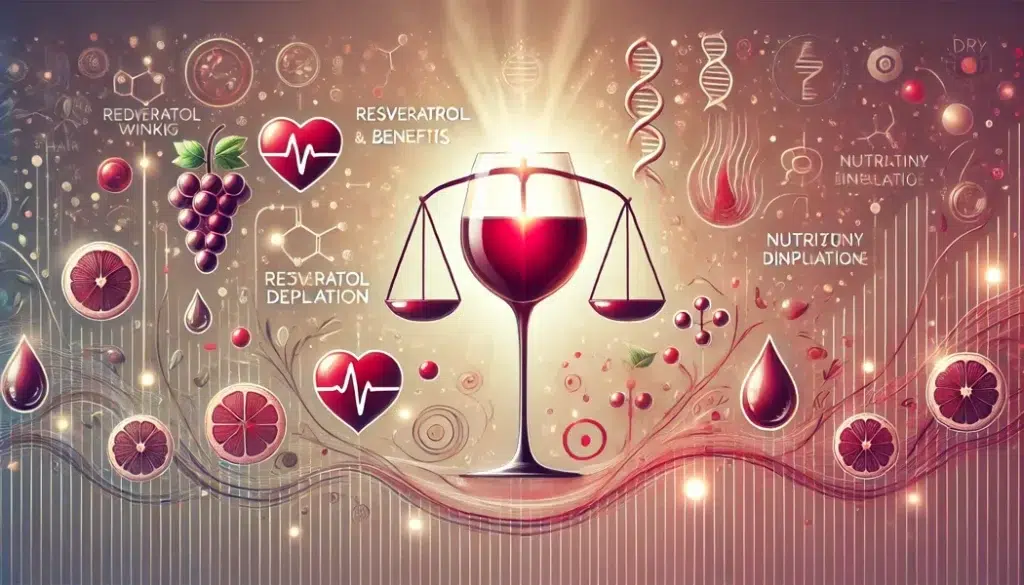
Interestingly, small amounts of alcohol—especially red wine—may offer some potential benefits. Compounds like resveratrol, found in grape skins, have been studied for their antioxidant properties that could support cardiovascular health ❤️ (Mayo Clinic). Other research links moderate alcohol intake to improved blood circulation 🩸, which is crucial for delivering nutrients to hair follicles (PubMed).
But moderation is key ⚖️. Once drinking exceeds these limits, the negative effects begin to outweigh the potential benefits—especially when it comes to hair health.
What this means for your hair: occasional, moderate drinking is unlikely to harm your hair, and in some cases may even slightly boost circulation. But regularly exceeding the safe limits accelerates nutrient loss and hormonal imbalance, which can weaken hair over time 💇.
📗 Fresh Evidence: Alcohol and Hair Loss
A 2025 systematic review (17 studies, 61,000+ participants) has linked frequent alcohol and sugar-sweetened beverage consumption with a higher risk of hair loss. Researchers emphasize that while the data shows a strong association, it does not yet prove direct causation. Still, the findings strengthen the advice to limit heavy drinking and support hair health through proper nutrition and hydration (Health.com, Food & Wine).
What this means for your hair: while one glass of wine is unlikely to hurt, regular excess—especially when combined with sugary drinks—can worsen the stress on your follicles. Choosing moderation and balanced nutrition remains the safest path for stronger, healthier hair. 🧠
⚠️ Alcohol and Hair: What Happens Inside the Body
One of the most direct ways alcohol harms the body is through dehydration 💧. Alcohol acts as a diuretic, increasing fluid loss and leaving tissues—including the scalp—dry (PubMed). A dehydrated scalp struggles to maintain a healthy environment for follicles, often resulting in dryness, irritation, and weaker hair shafts.
Excessive alcohol intake also depletes key nutrients 🥦. Chronic drinking reduces the absorption of B vitamins, zinc, magnesium, and proteins, all essential for hair growth and strength (UofL). Without these building blocks, follicles can’t produce thick, resilient strands.
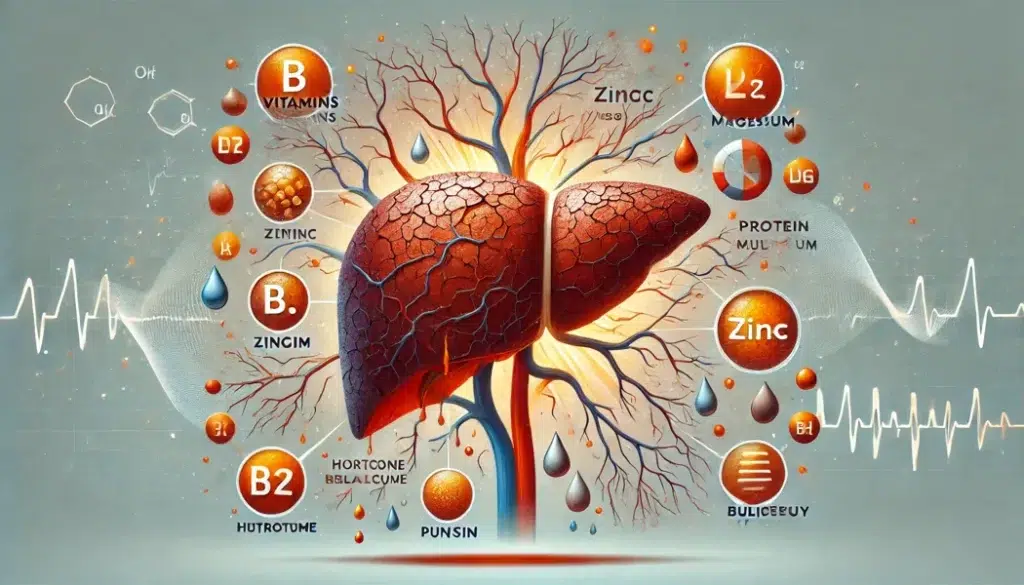
The liver is another critical player. Heavy drinking puts the liver under constant stress ⚠️, limiting its ability to metabolize hormones and detoxify harmful compounds (MDPI). When the liver is overloaded, hormonal imbalances and toxin buildup spill into the bloodstream – affecting every organ, including the scalp.
What this means for your hair: dehydration makes strands brittle 💇, nutrient depletion weakens follicle activity, and a stressed liver allows toxins and hormones to spiral out of balance. Together, these effects leave hair dull, fragile, and more prone to shedding.
🧬 Hormones and Hair Under Alcohol’s Influence
Alcohol doesn’t just affect hydration and nutrition—it also disrupts the hormonal balance ⚖️ that directly controls hair growth.
Studies show that heavy alcohol use can lower testosterone while increasing estrogen levels (BioMed Central). This imbalance often pushes more testosterone into conversion to dihydrotestosterone (DHT), the hormone most strongly linked to hair follicle miniaturization and androgenetic alopecia (ScienceDirect).
At the same time, alcohol increases the release of cortisol, the body’s primary stress hormone 😰. Elevated cortisol levels disrupt the natural hair cycle, pushing follicles into a resting phase (telogen) and triggering diffuse shedding (PubMed).
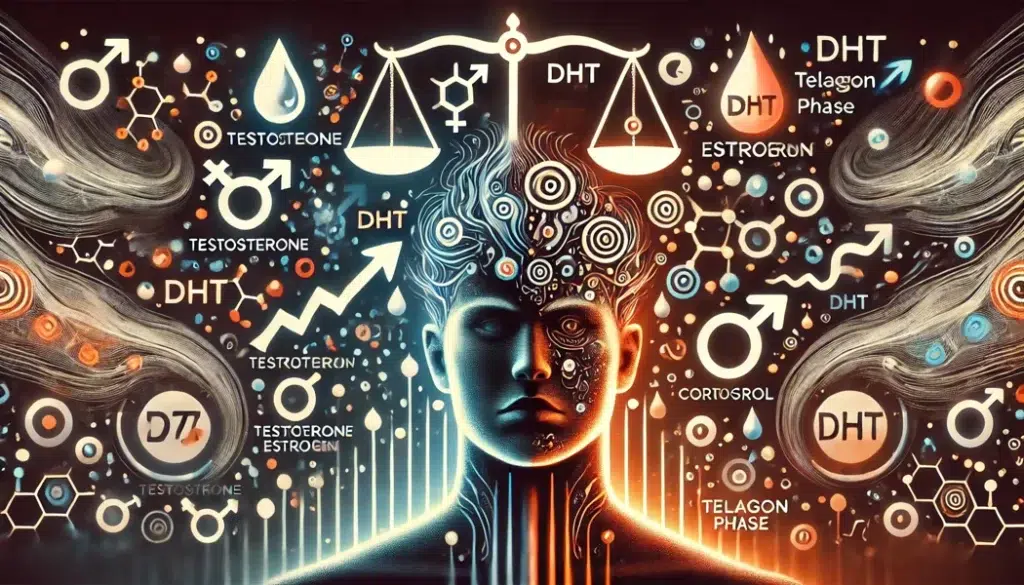
What this means for your hair: excess alcohol fuels the exact hormonal imbalances—high DHT and cortisol—that accelerate hair thinning and loss 💇. Over time, this makes regrowth slower and existing hair weaker
🧠 Alcohol, Mental Health, and Stress
Alcohol is often seen as a quick way to relax 😌, but research shows its long-term effects on mental health are far from calming. Regular heavy drinking is linked to higher rates of anxiety and depression (Schuckit et al., Alcohol, Anxiety, and Depressive Disorders, (PMC. What starts as temporary relief often deepens emotional struggles over time.
Another overlooked consequence is sleep disruption. While alcohol may help you fall asleep faster, it reduces REM sleep and lowers overall sleep quality (ResearchGate). Without proper restorative sleep, the body produces less growth hormone, a critical factor for cellular repair—including the regeneration of hair follicles.
Psychological distress also raises cortisol levels, creating a vicious cycle: alcohol worsens mental health, stress hormones increase, and hair growth is further disrupted (PubMed).
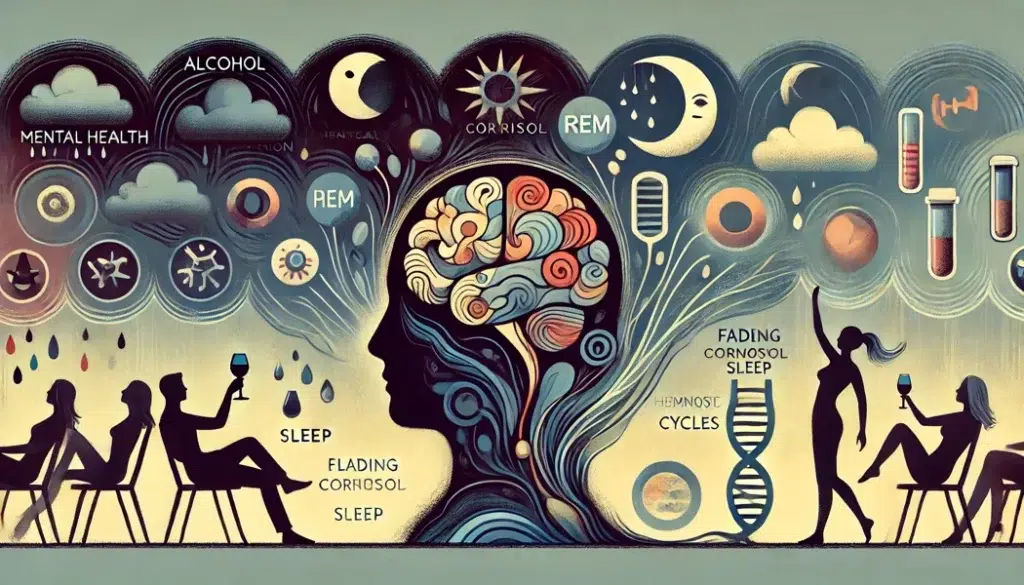
What this means for your hair: poor sleep, elevated stress, and worsening mood combine to block healthy growth cycles. The result is hair that becomes thinner, weaker, and more prone to shedding over time 😰
🧼 Alcohol and Hair Hygiene
Heavy drinking often leads to neglecting basic self-care routines 🥀. Research shows that alcohol abuse is linked with poorer personal hygiene habits overall (Mayo Clinic). When hair care is skipped, the scalp becomes more vulnerable to problems like:
- Excess sebum buildup, which clogs follicles and suffocates hair roots.
- Dandruff and irritation, fueled by an unhealthy scalp environment.
- Inflammation of follicles, increasing the risk of shedding and slower regrowth.
These issues add another layer of damage on top of alcohol’s internal effects, creating a hostile environment for healthy hair.
What this means for your hair: when poor hygiene combines with the internal stress of alcohol, hair becomes greasy, lifeless, and more prone to thinning.
👉 Tip for recovery: choose a mild, natural shampoo with strong anti-DHT properties to cleanse without stripping the scalp. Hair Growth Shampoo helps restore balance while supporting healthier, stronger hair 🌱.
🩸 Liver, Circulation, and Follicles
The liver is one of the body’s hardest-working organs 💪, responsible for breaking down toxins and regulating hormones. Chronic alcohol use places the liver under constant stress ⚠️, impairing these essential functions (PubMed Central).
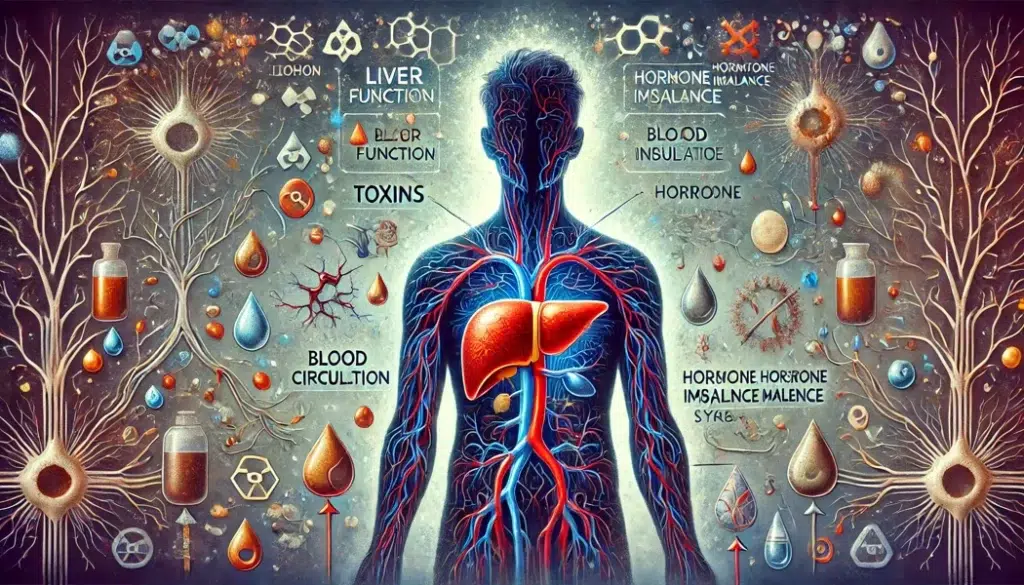
When the liver is overworked, toxins build up in the bloodstream and hormone regulation falters. At the same time, heavy drinking damages blood vessels and reduces microcirculation 🩸—the fine network that delivers oxygen and nutrients directly to the hair roots (MDPI).
Without adequate blood flow, follicles struggle to stay active, eventually shrinking and producing thinner, weaker strands.
What this means for your hair: a stressed liver and weakened circulation leave follicles “starved” of oxygen and nutrients 💇♂️. Over time, hair becomes dull, loses volume, and sheds more easily.
💨 Other Lifestyle Risks: When the Damage Multiplies
Alcohol rarely acts alone. When combined with other lifestyle risks, the damage to hair becomes far more severe than any single factor on its own.
- Smoking 🚬 constricts blood vessels, lowering scalp circulation and adding oxidative stress that accelerates follicle damage (PubMed).
- Chronic stress 😰 increases cortisol, disrupting the natural hair cycle and pushing more follicles into the resting (telogen) phase (NIH).
- Poor diet 🍔 deprives follicles of the amino acids, vitamins, and minerals needed to build strong, resilient strands (ScienceDirect).
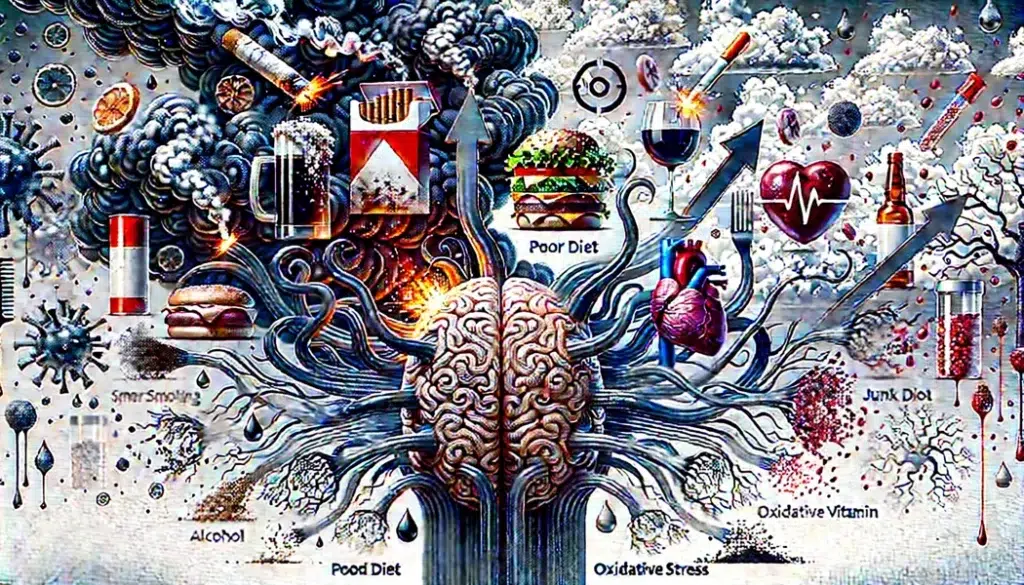
When these risks overlap, the impact isn’t simply added—it multiplies. Alcohol plus smoking, stress, and poor nutrition create the perfect storm for faster, more noticeable hair thinning.
What this means for your hair: multiple unhealthy habits stack up against your follicles. Instead of gradual thinning, you may face accelerated hair loss, reduced density, and slower recovery if the triggers aren’t addressed together.
🌱 Holistic Steps for Protecting and Restoring Hair
🥦 Lifestyle and Nutrition for Stronger Hair
The best way to reduce alcohol’s impact is by supporting your body through healthy daily habits. Balanced nutrition and mindful routines can offset much of the internal stress caused by heavy drinking.
- Stay hydrated 💧: water helps counter alcohol’s dehydrating effects and keeps your scalp balanced.
- Eat nutrient-dense foods 🥦: lean proteins, zinc-rich seeds, leafy greens, and healthy fats like cold-pressed olive oil fuel follicle activity.
- Manage stress 😌: adapt relaxation techniques, mindfulness, or breathing exercises to lower cortisol.
- Move your body 🏃♂️: regular moderate exercise improves circulation, delivering more oxygen and nutrients to your scalp.
- Spend time in nature 🌳: fresh air and natural light help regulate hormones, boost mood, and improve overall wellbeing.
What this means for your hair: when you nourish your body and reduce stress, your follicles recover faster, hair becomes thicker, and shedding slows down.
💊 Natural, Plant-Based Support – Expert Recommendations
- Hair Growth Conditioner + Scalp Massager + Minoxidil
– Packed with natural DHT-blocking ingredients, supports faster regrowth and improves absorption at the root level. - DHT-Blocking Shampoo (Plant-Based) + Minoxidil
– A gentle cleansing formula that helps keep follicles clear and active while reducing DHT build-up. - Anti-Stress Supplements (Adaptogen-Based)
– Rhodiola, ashwagandha, and other adaptogens to lower cortisol and reduce stress-related shedding. - Plant-Based Hair Growth Supplements
– Nutrient-rich blends with biotin, zinc, and amino acids to restore strength and fuel follicle recovery.
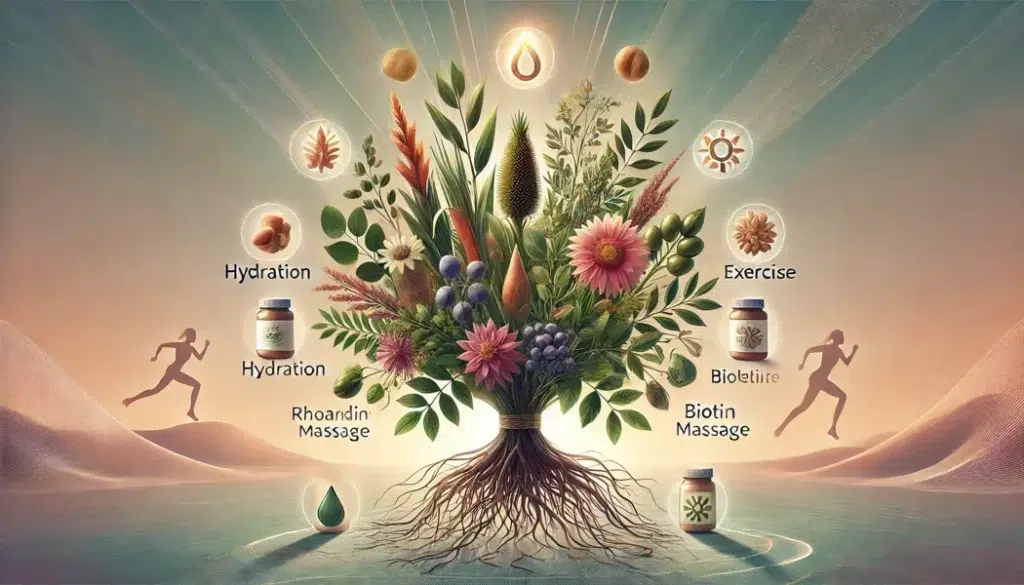
What this means for your hair: combining mindful lifestyle choices with targeted plant-based support creates the strongest foundation for healthier, thicker, and more resilient hair 🌟
🌟 Conclusion – Hair as a Mirror of Health
Alcohol is not the enemy when enjoyed in moderation 🍷. For many people, it is part of culture, relaxation, and connection. But when drinking becomes excessive, the effects ripple through the entire body—and hair is one of the first visible casualties.
Your follicles are incredibly sensitive to changes in hydration, nutrition, hormones, liver function, circulation, and even your state of mind. Heavy alcohol use disrupts every one of these systems. The result? Hair that loses its shine, grows thinner, and sheds faster. Add smoking 🚬, chronic stress 😰, or poor diet 🍔 into the mix, and the damage multiplies.
The good news is that hair is resilient. Just as it reacts negatively to overload, it also responds positively to care and balance. By setting boundaries with alcohol ⚖️, nourishing your body with whole foods 🥦, and adopting stress-reducing routines 🧘, you give your follicles the environment they need to thrive again.
If your hair already shows signs of weakness, don’t lose hope. Improvements come step by step. Supportive products—like gentle DHT-blocking shampoos, nutrient-rich supplements, or scalp-stimulating tools—can accelerate recovery. But the most important shift is in your lifestyle: drinking mindfully, caring for your body, and allowing your mind to rest.
Your hair is more than just strands—it’s a mirror of your inner health. By respecting your limits and choosing balance, you’re not only protecting your hair but also strengthening your body and mind for the long run. Every small change you make today is an investment in healthier, stronger, more vibrant hair tomorrow 🌟
Stay with us — the best is yet to come.
By following our advice, you’re doing the most you can for your hair.
Be the first to know when we publish new guides, tests, and proven strategies for stronger, healthier hair.
👉 Visit the About Me page to learn more about my journey, mission, and why helping people with hair health is so personal to me.
Want healthier, stronger hair? Discover 8 science-backed habits that protect your scalp and boost natural growth. Get your free PDF guide today!
Disclaimer: This article is for informational purposes only and is not a substitute for professional medical advice. Sensitive claims are supported with scientific references, and full product details can always be found on the official websites of the respective manufacturers or distributors.
Some links in this article are affiliate links. If you choose to make a purchase through them, I may earn a small commission at no extra cost to you — helping me keep HairGrowGenius running. Thank you for your support!

❓ Frequently Asked Questions
🍷 Can occasional binge drinking affect my hair?
Yes. Even if you usually drink moderately, a single episode of binge drinking can trigger dehydration, oxidative stress, and a spike in cortisol levels. These effects may cause temporary shedding or make existing hair issues worse, especially if binges are repeated.
🧬 Does alcohol interact with hair growth treatments like minoxidil or supplements?
It can. Alcohol puts extra stress on the liver and may reduce nutrient absorption, limiting the effectiveness of supplements. It may also worsen inflammation, which slows down scalp recovery. While it doesn’t directly block minoxidil, heavy drinking can undermine the overall conditions needed for regrowth.
😴 Can quitting alcohol improve hair health—and how long does it take?
Yes. Once alcohol intake is reduced or stopped, the body begins restoring hydration, hormone balance, and nutrient absorption. Hair typically needs several months to reflect these changes, since follicles grow in cycles. Over time, many people notice thicker, shinier hair and less shedding.
📚 References
- Mayo Clinic – Red wine and resveratrol
- PubMed – Alcohol and blood circulation
- PubMed – Alcohol and dehydration effects
- University of Louisville – Alcohol and nutrition
- MDPI – Liver stress and alcohol
- BioMed Central – Alcohol, testosterone, and estrogen imbalance
- ScienceDirect – DHT and follicle miniaturization
- PubMed – Cortisol and hair growth disruption
- PubMed Central – Alcohol, anxiety, and depressive disorders
- ResearchGate – Alcohol and sleep disruption
- PubMed – Cortisol, psychological distress, and hair health
- Mayo Clinic – Alcohol and lifestyle impact
- PubMed Central – Alcohol’s effect on liver function
- MDPI – Alcohol, microcirculation, and hair health
- PubMed – Smoking and follicle damage
- NIH – Stress and hair loss
- ScienceDirect – Poor diet and hair health
🧠 Every reference listed here comes from peer-reviewed research, carefully selected to give you clear, reliable, and science-backed insights into how alcohol and lifestyle choices affect your hair health.

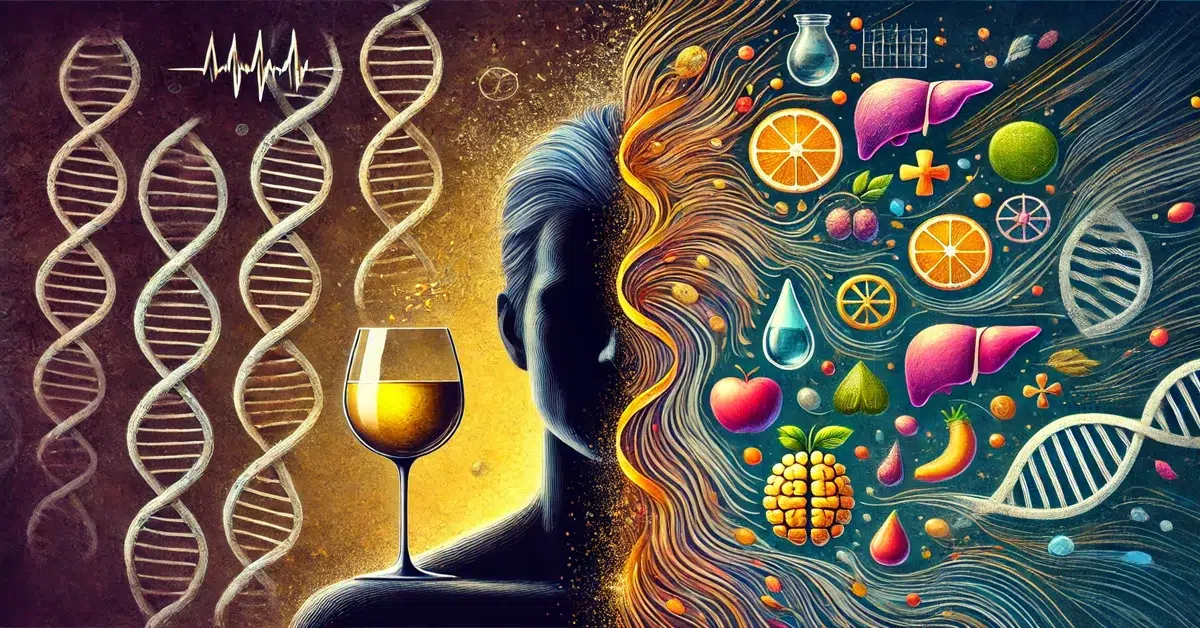
Leave a Reply